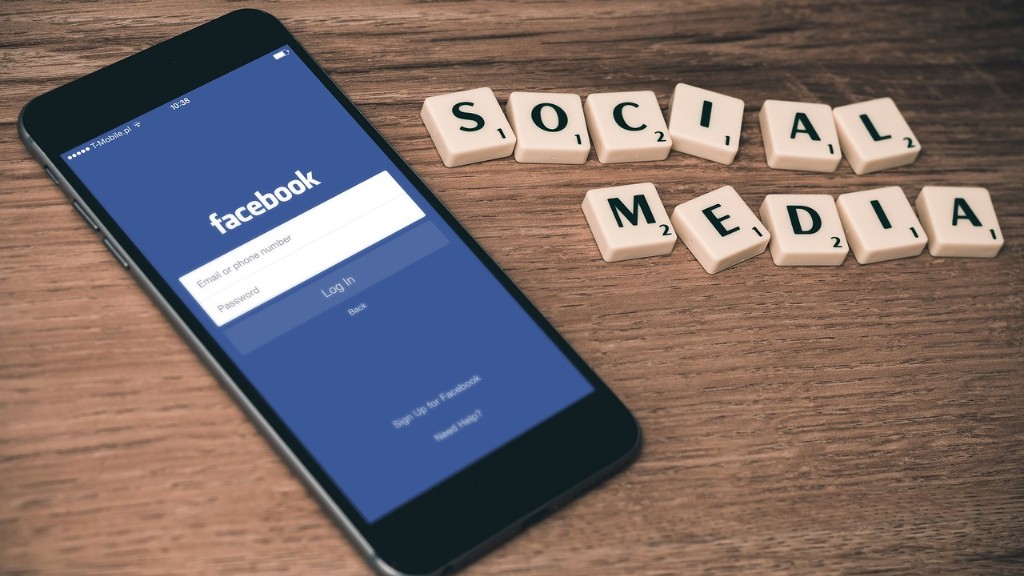Digital marketing tools are those that allow marketers to execute digital marketing campaigns. The most common digital marketing tools include email marketing, social media marketing, and search engine marketing. Other digital marketing tools include web analytics, content marketing, and mobile marketing.
1. Email marketing tools like MailChimp or Constant Contact can help you automate your email marketing campaigns and track their performance.
2. Social media management tools like Hootsuite or Sprout Social can help you track your social media activity and engagement, as well as help you schedule and publish content.
3. Google Analytics is a free tool that can help you track your website traffic and understand your audience better.
4. SEO tools like Moz or SEMrush can help you track your website’s search engine ranking and help you optimize your website for better search visibility.
What tool is used in digital marketing?
Digital marketing is always changing and evolving, and it can be tough to keep up with the latest trends and tools. However, by staying aware of the latest developments, you can ensure that your digital marketing campaigns are as effective as possible.
Here are some digital marketing tools and trends to watch out for in 2022:
1. Social media marketing tools: Social media will continue to be a powerful marketing channel in 2022. To make the most of it, consider using social media marketing tools such as Hootsuite, Sprout Social, or Buffer. These tools can help you manage your social media accounts, track your performance, and engage with your audience.
2. Influencer marketing tools: Influencer marketing is a great way to reach new audiences and build brand awareness. In 2022, consider using influencer marketing tools such as Traackr or Upfluence to identify and connect with relevant influencers.
3. Email marketing/marketing automation tools: Email marketing is a great way to stay in touch with your customers and prospects. In 2022, consider using email marketing tools such as Mailchimp or Constant Contact to automate your email marketing campaigns.
4. SEO (search engine optimization) tools: SEO will continue to be
Digital marketing is constantly evolving, and it can be tough to keep up with the latest trends and tools. Here are 20 digital marketing tools that you should be aware of in 2023:
1. MailChimp – A popular email marketing platform that allows you to create and send newsletters, campaigns, and other communications to your customers.
2. Google Analytics – A powerful analytics tool that provides insights into your website traffic and marketing campaigns.
3. Google Ads – An effective way to reach your target audience through online advertising.
4. Canva Business – A great way to create professional-looking visuals for your website, social media, and marketing materials.
5. Trello – A project management tool that can help you keep track of your digital marketing projects and tasks.
6. Slack – A communication tool that can be used for team collaboration, including for marketing teams.
7. Yoast SEO – A WordPress plugin that helps you optimize your website for search engines.
8. Survey Anyplace – A tool that allows you to create surveys and gather feedback from your customers.
9. Hootsuite – A social media management platform that lets you schedule and publish content, as well as track
What are three major types of digital marketing tools
Digital marketing covers a wide range of marketing activities that are carried out online. The most common types of digital marketing are search engine optimization (SEO), pay-per-click (PPC) advertising, and social media marketing.
SEO is the process of optimizing a website for Google search with the goal of increasing the site’s ranking in the search results. PPC is a form of advertising where businesses pay a fee to have their ad appear in the search results. Social media marketing is the process of promoting a business or product on social media platforms such as Facebook, Twitter, or Instagram.
There are a few essential marketing tools that can make your life a lot easier. Planning is one of them – it’s important to have a plan and know what you’re doing in order to be successful. Social media advertising is another essential – if you want to reach your target audience, you need to be present on social media. Display advertising tools and content marketing are also important – they can help you reach a wider audience and get your message across. Email marketing is another great tool to use – it can help you build relationships with your customers and keep them updated on what’s going on with your business.
What are basic digital tools?
Digital transformation is the process of using digital technologies to create new or different processes, services, and customer experiences. To support a successful digital transformation, businesses need the right tools in place. Here are 10 essential tools to support your digital transformation:
1. Collaborative suites: These tools help teams work together on projects and share information securely.
2. Communication tools: These tools help teams communicate with each other and with customers.
3. New generation intranet platforms: These platforms provide a secure, centralized place for businesses to share information and collaborate.
4. CRM tools: These tools help businesses manage customer relationships and track customer data.
5. CMS tools: These tools help businesses create and manage digital content.
6. Cloud storage: This type of storage provides a safe, secure place to store digital content and files.
7. Project management tools: These tools help businesses plan, track, and manage projects.
8. Recruitment management tools: These tools help businesses find and hire the best talent.
9. Learning management systems: These systems help businesses train employees and provide them with the resources they need to learn new skills.
10. Analytics tools: These tools help
The four Ps of marketing are product, price, place, and promotion. They are an example of a “marketing mix,” or the combined tools and methodologies used by marketers to achieve their marketing objectives.
Product refers to the physical goods or services that a company offers for sale. Price is the amount of money that a customer must pay to purchase the product. Place is the location where the product is sold, and promotion is the marketing activities that a company undertakes to make customers aware of its products and to persuade them to purchase them.
The four Ps are interrelated and must be carefully coordinated in order to be effective. For example, a high price may be offset by effective promotion, or a poor product may be improved by a good price. The challenge for marketers is to find the right combination of the four Ps that will maximize sales of their product.
What’s an example of digital marketing?
Digital marketing refers to the use of digital channels and tools to promote or market products and services.
Some common examples of digital marketing include:
-Social Media Marketing (SMM): This involves using social media platforms like Facebook, Twitter, and Instagram to promote or market products and services.
-Search Engine Optimisation (SEO): This involves optimising website content and structure to improve organic search engine results.
-Search Engine Marketing (SEM): This involves using paid advertising methods like Google AdWords to promote or market products and services.
Facebook is a powerful marketing tool for businesses of all sizes. It is a great space to keep customers informed, develop brand identity, and broaden your reach. Facebook can help you connect with more customers and grow your business.
What is the most commonly used type of digital marketing
When it comes to digital marketing, there is no one-size-fits-all solution. The best digital marketing strategy for your business will depend on a number of factors, including your budget, your target market, and your business goals.
However, there are some digital marketing strategies that are more effective than others. Here are six of the most effective types of digital marketing:
1. Content Marketing
Content marketing is a strategy that involves creating and distributing high-quality content to attract and retain customers. The goal of content marketing is to build brand awareness and drive sales.
2. Search Engine Optimization
Search engine optimization (SEO) is a digital marketing strategy that involves optimizing your website and content for the search engines. The goal of SEO is to improve your visibility in the search results and drive more traffic to your website.
3. Search Engine Marketing/Pay-Per-Click
Search engine marketing (SEM) is a digital marketing strategy that involves paying for advertising on the search engines. The goal of SEM is to improve your visibility in the search results and drive more traffic to your website.
4. Social Media Marketing
Social media marketing is a digital marketing strategy that involves using social media
The 7 P’s of marketing mix are product, price, place, promotion, people, packaging, and process. These elements are used to determine a product or service’s marketing strategy.
What are the types of digital tools?
Technology has become increasingly commonplace in our lives and has had a profound impact on the way we live, work, and play. As such, it’s no surprise that digital tools and resources have become an important part of education.
Word processing documents, slide presentation software, and electronic reference materials are just a few of the ways that technology can be used to support learning. Tablet and cellphone apps can also be incredibly useful for students, providing access to information and resources that can be used both inside and outside of the classroom.
Digital tools and resources can make learning more engaging and interactive, and can provide students with new ways to access and use information. With so many available options, there’s sure to be something that can meet the needs of every learner.
There are a few things that any beginner in digital marketing should focus on:
1) Get on-the-job experience: Once you’ve decided on an initial focus area, put yourself out there and get some real world experience. There’s no substitute for actually doing the work.
2) Learn as much as you can: Read books, blog posts, and articles on your chosen focus area. Attend webinars and conferences. And most importantly, experiment and test what works for you and your audience.
3) Search Engine Marketing (SEM): SEM is a form of online marketing that involves paying for placement in search engine results pages (SERPs). This can be a great way to get your website in front of potential customers who are already looking for what you have to offer.
4) Email Marketing: Email marketing can be a great way to stay in touch with your customers and build relationships over time. Start by collecting email addresses from people who are already interested in what you have to offer.
5) Content Marketing: Content marketing is all about creating and sharing valuable content to attract and engage your target audience. This can be in the form of blog posts, infographics, videos, or even just helpful articles or
What are basic marketing tools
There is no one-size-fits-all solution when it comes to marketing for businesses. The vast majority of businesses use a combination of different marketing tools to reach their target audiences and boost sales. Common marketing tools include advertising, direct mail, market research, and public relations. The key is to find the right mix of marketing activities that work together to achieve your business goals.
The 5s are a set of performance measures for digital marketing activities. They include Sell, Serve, Speak, Save, and Sizzle.
Sell: This covers measures to help increase sales, such as conversion rate and average order value.
Serve: This covers measures to help improve customer service, such as customer satisfaction and first contact resolution.
Speak: This covers measures to help improve communication, such as response rate and open rate.
Save: This covers measures to help improve cost efficiency, such as cost per conversion and cost per click.
Sizzle: This covers measures to help improve brand awareness, such as social media engagement and website traffic.
What marketing tools do I need?
There are many different types of marketing tools available to companies today. Customer relationship management (CRM) software can help businesses to track and manage customer interactions and data. Online advertising can reach target audiences through various online channels such as search engines, social media platforms, and website banner ads. Social media marketing can create brand awareness and build customer relationships through platforms such as Facebook, Twitter, and LinkedIn. Search engine optimization (SEO) can help to improve a website’s visibility in organic search results. Content creation and design can produce engaging and informative marketing collateral such as website content, blog posts, infographics, and product videos. Video marketing can reach a wide audience through online platforms such as YouTube and Vimeo. Event marketing can generate interest and excitement for a company’s products or services through face-to-face interactions at trade shows, conferences, and other events. Lead capture and conversion tools can help businesses to track and manage leads throughout the sales process.
Digital tools are a great way to create an immersive experience for students in the classroom. Chromebooks, tablets, and Airtame devices are all popular digital classroom tools that can help students engage with the material in a more engaging way.
Final Words
Digital marketing tools are used to help promote and market products or services using digital technologies. They can include website creation and optimisation, social media marketing, search engine marketing, email marketing, online advertising and mobile marketing.
Digital marketing tools are essential for businesses of all sizes to reach their target audiences. There are a wide variety of digital marketing tools available, and each has its own strengths and weaknesses. businesses need to carefully select the digital marketing tools that will work best for them, based on their goals and resources.





